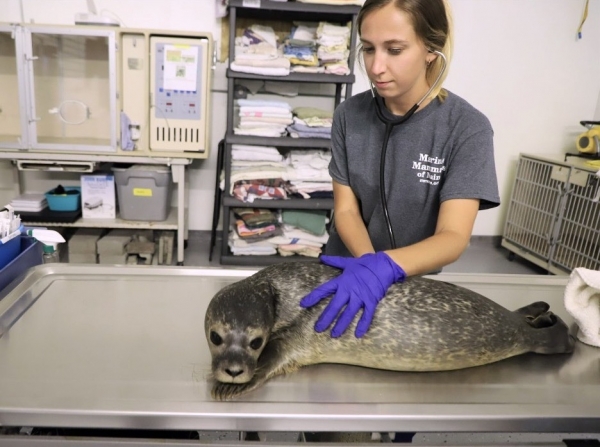Last June, the phones at Marine Mammals of Maine began ringing — a lot. People walking the craggy shoreline of Casco Bay, which stretches north and south of Portland, were reporting sick or dead seals. Late spring and early summer, as pups begin to set off on their own, are usually the rescue and rehabilitation center’s busiest time, but the volume of calls kept increasing. “We were dealing with three times the number of animals we would normally be dealing with,” says Lynda Doughty, the center’s executive director.
One harbor seal’s behavior stood out. The animal was, Doughty recalls, “neurologic” — its weight and overall nutrition were fine, but in addition to coughing and sneezing, it was twitching and seemed disorientated. The young male’s condition was rapidly declining, and Doughty’s thoughts turned to the many recent reports of wild birds — like raptors and gulls — infected with a new strain of H5N1, a highly contagious avian influenza. She worried that whatever ailed the rapidly declining seal could spread to the other seals crowding the center and made the difficult decision to euthanize. Then she called Wendy Puryear.
Read more at Yale Environment 360
Photo: A worker with Marine Mammals of Maine tends to a seal. CREDIT: MARINE MAMMALS OF MAINE


